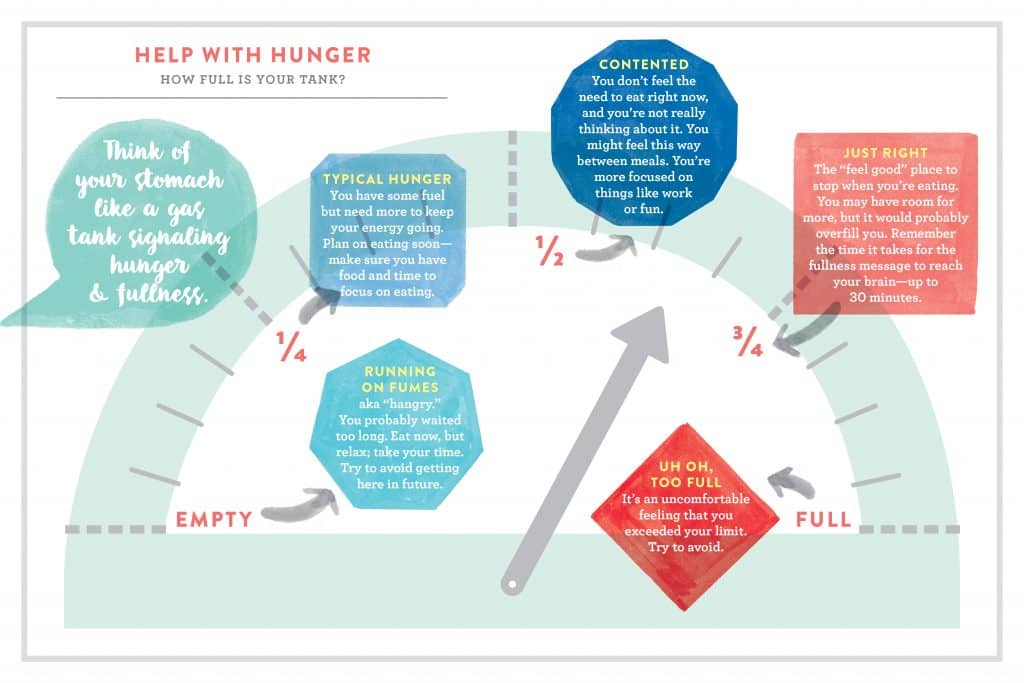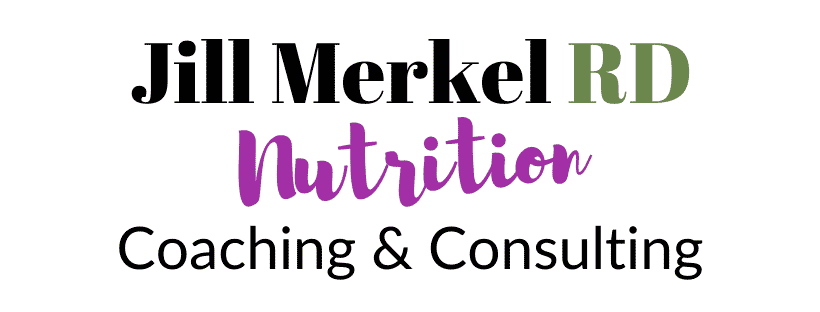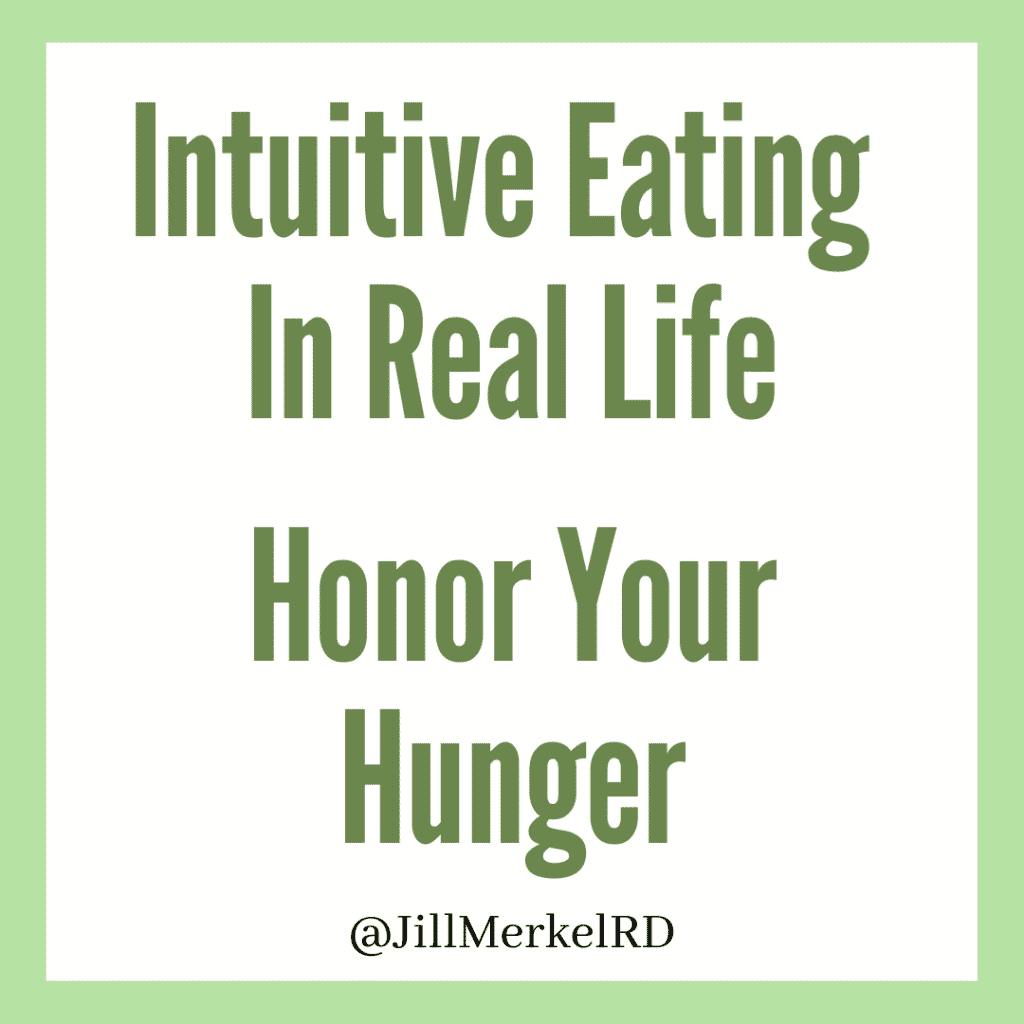Today, we continue the In Real Life (IRL) version of the Intuitive Eating Series with Intuitive Eating In Real Life Principle 2 Honor Your Hunger.
In case you missed it:
- What is Intuitive Eating?
- Intuitive Eating Principle 1: Reject the Diet Mentality
- Intuitive Eating In Real Life: Principle 1
- Intuitive Eating Principle 2: Honor Your Hunger
Intuitive Eating In Real Life Principle 2 Honor Your Hunger
The snapshot of Intuitive Eating Principle 2 is: “Keep your body biologically fed with adequate energy and carbohydrates. Otherwise you can trigger a primal drive to overeat. Once you reach the moment of excessive hunger, all intentions of moderate, conscious eating are fleeting and irrelevant. Learning to honor this first biological signal sets the stage for rebuilding trust with yourself and food.”
Intuitive Eating In Real Life Principle 2 Honor Your Hunger
This chapter and principle is all about the biological effects of restriction (dieting). I believe this chapter really helps people begin to understand the WHY behind restriction and how it doesn’t lead to long-term weight loss. As elaborated on in another one of my favorite nutrition books, Secrets from the Eating Lab by Traci Mann, the body adapts to a period of restriction by slowing down your metabolism to conserve energy, which allows your body to run on even fewer calories. This means more calories are left unused and can be stored as fat. Additionally, diets are stressful and stress also leads people to act in ways that cause weight gain, such as overeating, exercising less, and sleeping less.
The Honor Your Hunger chapter also focuses a lot on carbohydrates, in particular. This is because carbohydrates are the preferred energy source for your brain and body. Have you ever tried to go on a low-carb diet? How did that go for you? Likely, it led to an increase in cravings for carb-based foods and a preoccupation or obsession with those foods. I’ve said it before, but carbohydrates ARE NOT BAD! They are a very important food source and they contain lots of good nutrients such as fiber, vitamins, and minerals. They often provide more satisfaction to a meal or snack and keep you feeling full longer than a meal or snack with no carbs.
Additionally, the Intuitive Eating Workbook, for Principle 2: Honor Your Hunger, talks about self-care. Giving your body adequate food and nutrition is a form of self-care. I have seen this present in several of my nutrition clients when they are struggling with disordered eating. They do not treat their bodies or themselves very well, and that includes not feeling worthy of adequate food or nutrition. On the flip side, if you are not regularly engaging in other forms of self-care such as emotional, physical, psychological, relationships, etc., you may feel out of control around food or overly focused on food because it has become your main (possibly even your only) source of comfort and self-care.
Furthermore, this chapter of Intuitive Eating means more than just eating when you are hungry. It means getting (back) in touch with your hunger signals and cues. Are you able to recognize what it feels like when you are slightly hungry versus neutral (not hungry) versus really hungry?
When you feel or notice your hunger cues, do you listen to them and get something to eat? Or do you:
- Question them, asking yourself “why am I hungry?” or wondering if it’s too soon to eat or if you should wait until X time to eat, etc.
- Ignore them, try to block them out, or numb them.
- Feel proud of feeling hungry or of not honoring your hunger cues because you feel it’s a sign of willpower or a leftover feeling from previous diet experiences?
Depending on your previous experiences with restriction (dieting), ignoring your hunger signals, or other eating disorder behaviors, it may take some time to get back in touch with what hunger feels like for you. Every time you respond to your hunger cues with nourishment, you are re-building trust and connection with your body.
What People Are Saying About Intuitive Eating
As some of the individuals in my online Intuitive Eating Focus Group are saying as they continue to dive into the concepts of Intuitive Eating:
“I remember learning about the Minnesota Starvation Experiment in my high school psychology class and thought it was crazy that anyone would agree to those conditions…and then I realized that I voluntarily put myself in that same situation.”
“I have realized that my years of diet mentality help me numb out the {hunger} cues in the middle & that I missed earlier cues that could have helped me avoid ravenous starvation eating. My job is incredibly busy and I don’t make time to plan for practical hunger, miss early hunger cues because I’m distracted and then overeat later in the day. This all causes lots of guilt because I felt out of control with food.”
“{The Self-Care Assessment} really highlights the fact that I’m not taking good care of myself physically or emotionally. When stressed, I over eat and do not take care of my physical body because I let busy-ness get in the way. This is a good point of reflection.”
“Sometimes after I finish a meal I will still feel hungry. However, sometimes 20 minutes later I’ll be perfectly content and other times I’ll still be hungry. One of my current challenges is deciphering between the two – and when I am still hungry trusting those cues without feeling guilty.”
Again, WOW! I love these real-life comments about how dieting interferes with life and the toll it takes on us physically and emotionally. I don’t know if you noticed, but GUILT is a big factor that keeps showing up in these comments. Maybe you can relate to that feeling?
As some of the above individuals mentioned, using a Hunger-Fullness Scale could be helpful if you have a hard time assigning a number (usually 1-10) to your specific hunger or fullness level. A couple of images I like and often use with clients are these:
The Hunger-Fullness “How Full is Your Tank?” image from the book, Body Kindness:

And this Hunger-Fullness Scale image from the book, Savvy Girl:

Here is what some of the individuals in my online IE Focus Group said about the Hunger-Fullness Scale:
“I am a big fan of the hunger and fullness scale – it definitely helps me take the focus off calories and onto hunger cues.”
“The hunger and fullness scale seems like a good way to start with an objective method for noticing & quantifying hunger cues.”
One final note: As someone mentioned previously about waiting 20 minutes after eating and then assessing if still hungry – this is completely normal and a beneficial practice to try. It takes about 20 minutes for the brain to catch up with the stomach’s fullness. It could be helpful to use the hunger-fullness scale and decipher where you are falling on it WHILE eating instead of waiting until after. And definitely trust your body if you are still hungry and allow yourself to eat more. Diet culture tends to use the “wait 20 minutes” as a trick to try and convince yourself you’re not still hungry.
I hope these posts are helpful and that you are enjoying this Intuitive Eating series and Intuitive Eating In Real Life series as much as I am.
As always, if you need additional guidance and support via individual nutrition coaching or counseling, please reach out and/or join the waitlist to be notified of future Intuitive Eating support groups.


